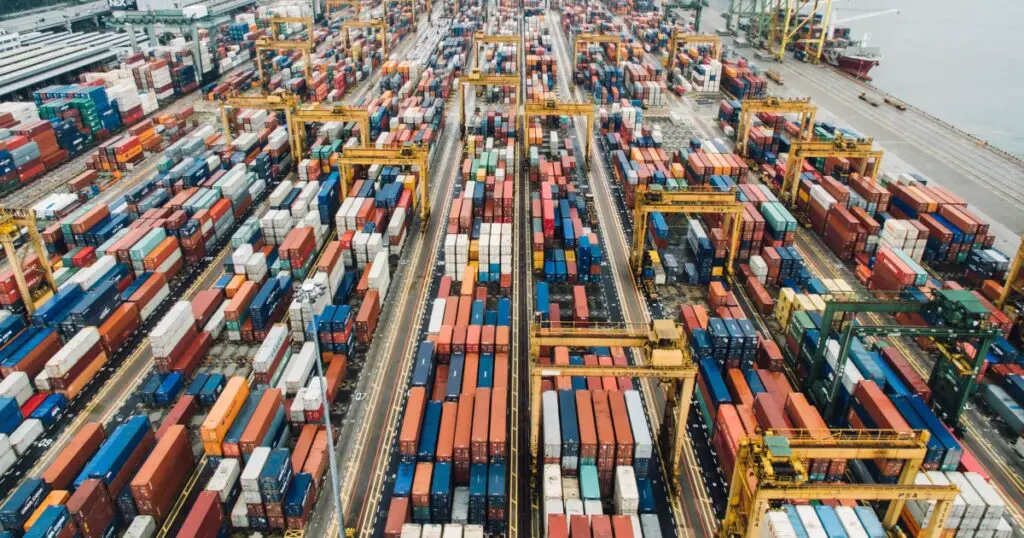- Global trade will grow by 70 per cent from USD17.4 trillion to USD29.7 trillion by 2030, data by Standard Chartered has shown
- The Future of Trade 2030: Trends and markets to watch report reveals 13 markets that will drive much of this growth, identifies major corridors, and five trends shaping the future of global trade
- The research found that 10 per cent of global corporates currently do or plan to manufacture in Kenya within the next five to 10 years
Global trade will grow by 70 per cent from USD17.4 trillion to USD29.7 trillion by 2030, a new research by Standard Chartered has projected.
The Future of Trade 2030: Trends and markets to watch report reveals 13 markets that will drive much of this growth, identifies major corridors, and five trends shaping the future of global trade.
Kenya is a key driver of this global trade growth, with its exports projected to grow at an average annual rate of over 7 per cent to cross USD10.2 billion by 2030.
The research found that 10 per cent of global corporates currently do or plan to manufacture in Kenya within the next five to 10 years. This is evidence that the country will play a key role in global trade growth over the next decade.
Pakistan will be the fastest-growing export corridor for Kenya, set to grow at an average annual rate of 10.7 per cent. Uganda and the USA will continue to be the leading export corridors for Kenya, accounting for 11 per cent and 9 per cent of total exports in 2030, respectively.
The report, commissioned by Standard Chartered and prepared by PwC, is based on an analysis of historical trade data and projections until 2030, as well as insights from a survey of over 500 C-suite and senior leaders in global companies.
Global trade will be reshaped by five key trends: the wider adoption of sustainable and fair-trade practices; a push for more inclusive participation; greater risk diversification; more digitisation and a rebalancing towards high-growth emerging markets.
Almost 90 per cent of the corporate leaders surveyed agreed that these trends will shape the future of trade and will form part of their five to 10-year cross-border expansion strategies.
Three things TMEA brings to Ethiopia in expansion plans
Globalisation will drive the next decade of growth. Despite the recent push towards onshoring, growth corridors of the future will not just be intraregional – they will be global spanning Africa-East Asia; ASEAN-South Asia; East Asia-Europe; East Asia- Middle East; East Asia-Europe; South Asia-US.
Asia, Africa and the Middle East will see a ramp-up in investment flows, with 82 per cent of respondents saying they are considering new production locations in these regions in the next five to 10 years, supporting the trend towards rebalancing to emerging markets and greater risk diversification of supply chains.
The research found a significant trend towards the adoption of sustainable trade practices in response to climate concerns and a rising wave of conscious consumerism.
However, while almost 90 per cent of corporate leaders acknowledged the need to implement these practices across their supply chains, only 34 per cent ranked it as a ‘top three’ priority for execution over the next five to 10 years.
Standard Chartered, in line with its commitment to help make global trade more sustainable and drive the transition to Net Zero, launched a Sustainable Trade Finance proposition to enable companies to build more sustainable and resilient supply chains. In addition, we offer a suite of sustainable finance solutions to channel capital towards helping companies achieve their Net Zero goals.
Makabelo Malumane, Head Transaction Banking Standard Chartered, said: “The predicted doubling of global trade offers strong evidence that globalisation is still working, despite recent dislocation. In addition to the growth of intra-regional trade pathways, the corridors of the future will still cut across continents.
She added: “Against this backdrop, we continue to focus on making globalisation work for more markets and businesses, ranging from micro to multinational, and drive a more sustainable and inclusive model for global trade. This includes growing our range of sustainable finance solutions to help our corporate clients implement sustainable and fair-trade practices across their supply chains.”
Key trends that will drive Africa’s economy in the next five years




